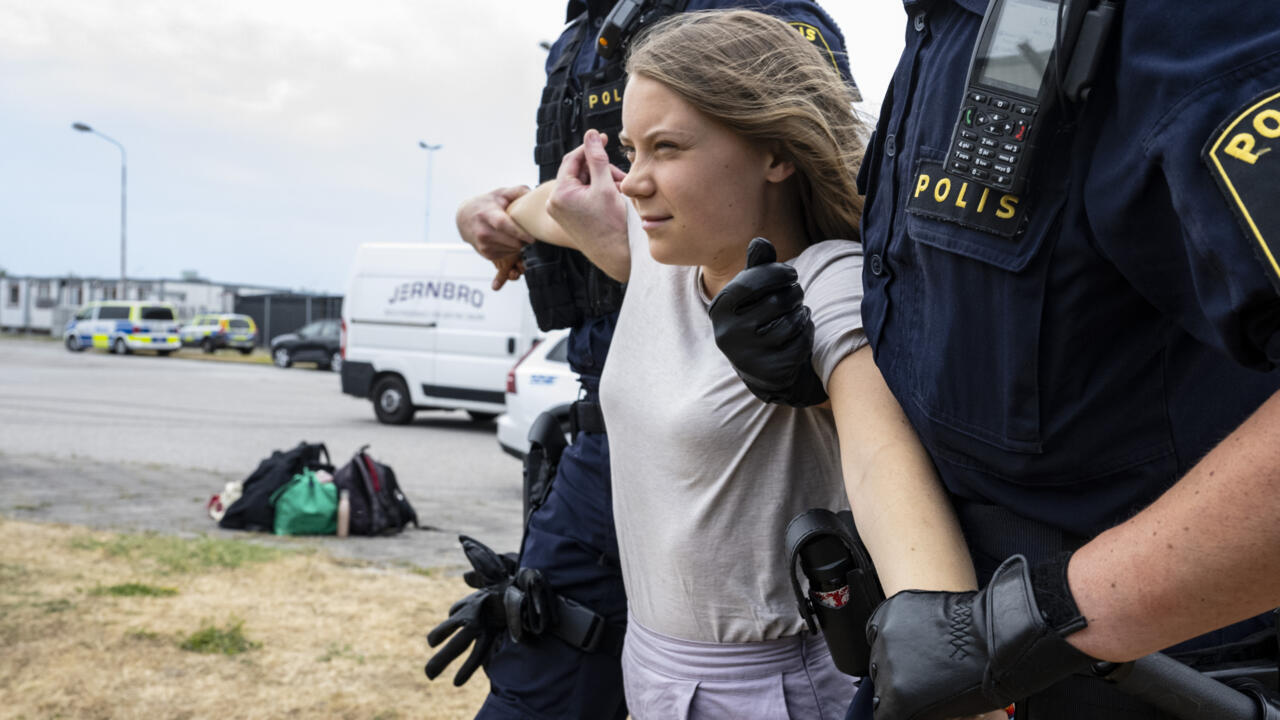
NGOCSTIP – Greta Thunberg faced a harrowing ordeal when she was detained following the interception of the Global Sumud Flotilla (GSF) heading toward Gaza. Israeli forces reportedly seized the humanitarian convoy before it could reach its destination. Israeli forces detained Thunberg along with dozens of activists, journalists, and politicians sailing with the GSF. Authorities then deported them after intercepting the ships. Witnesses describe scenes where Thunberg endured physical aggression, got dragged across the ground, and faced coercion to kiss an Israeli flag. These actions triggered global outrage and condemnation from human rights groups. Multiple eyewitnesses, including journalists and fellow activists, provided these accounts. They describe a situation filled with humiliation and the use of a well-known figure to support propaganda efforts. The story quickly captured international attention due to Thunberg’s global status as a climate activist and her presence in a politically charged mission.
Multiple participants in the GSF armada assert they witnessed aggressive behavior toward Greta Thunberg during the detention process. Journalist Ersin Celik claimed he saw soldiers drag her across the ground and force her to kiss the Israeli flag under duress. Other activists, including Hazwani Helmi from Malaysia and Windfield Beaver from the US, describe seeing her being pushed and draped in a flag for public display.
Israeli security officials allegedly ordered Greta Thunberg to stand in a room so they could photograph her in a demeaning posture. Observers claim the authorities staged the act to deliver a political message. Witnesses say they saw officials treat Thunberg as a tool for propaganda rather than as a detainee. The intense spotlight on Thunberg in this situation strengthens the symbolic weight of the incident. Critics question whether state authorities respected ethical boundaries when handling a high-profile public figure. International observers continue to examine and verify these troubling accounts.
“Read about: Minutes After Trump Says ‘Stop Bombing’, Israel Strikes Again, 7 Dead in Gaza!”
Beyond the physical coercion directed at Greta Thunberg, activists held with GSF allege broader abuses tied to deprivation of essentials. Some claim detainees were denied food, clean water, and medical care for days. One participant recounted they were forced to drink from a toilet due to lack of water. Others describe extreme heat and suffering from dehydration and hunger. Conditions reportedly deteriorated as time passed, intensifying the distress among those held. Some say they were held without proper oversight and subjected to intimidation tactics. These accusations contribute to a larger narrative of mistreatment and inhumane conditions under detention. They also raise concerns about compliance with international law and standards for the treatment of detained persons, especially in such politically charged contexts.
“Read more: Hell’s Kitchen Stunner: Christopher Jackson Departs, But Guess Who’s Back? Tank!”
Greta Thunberg’s reported treatment has triggered condemnation throughout diplomatic and advocacy circles. Countries with nationals detained alongside her have issued formal protests over how Israeli forces conducted the interception. Italy’s foreign ministry acknowledged the deportation of dozens of its citizens and directly criticized Israel for using aggressive tactics. Other nations continue raising concerns through diplomatic channels and international platforms. Human rights organizations demand independent investigations and urge accountability for the incident. Thunberg’s presence in the event intensifies scrutiny, as critics question the political intent behind such public targeting. International media outlets have expanded coverage of the story and explore whether Israeli authorities tried to deliver a calculated message. The incident now threatens to deepen tensions between Israel and governments as well as civil society groups focused on protecting human rights and freedom of expression.
The case involving Greta Thunberg illustrates how prominent activists can become symbolic targets in geopolitical conflicts. Her presence on the flotilla made her a high-value target for media narratives and political messaging. Detractors might use her detention as leverage or propaganda, while supporters see her suffering as an example of resistance and state overreach. The alleged act of forcing her to kiss a national symbol adds a dramatic public dimension to an already tense confrontation. It blurs the lines between enforcement, spectacle, and psychological pressure. Whether the allegations will hold up under investigation remains unclear, but the symbolic impact is already shaping public discourse. Media portrayal of such incidents often amplifies their effect, turning personal suffering into global rallying points. Thunberg’s involvement brings environmental activism into the spotlight of Middle East conflict dynamics, intertwining issues of justice, power, and symbolism.
This article is sourced from www.cnnindonesia.com and for more details you can read at ngocstip
Writer: Sarah Azhari
Editor: Anisa